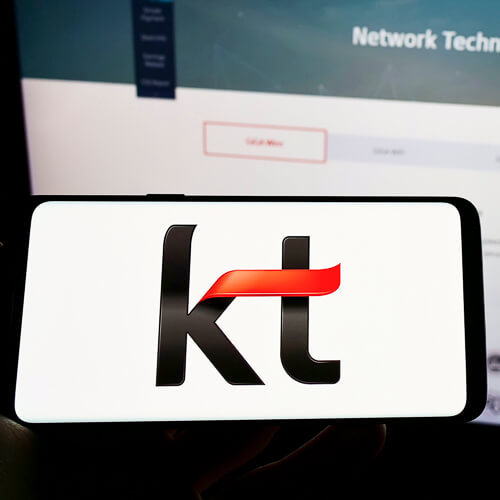KT plows $9B into digital diversification
The South Korean operator is making a big bet on cloud, media and artificial intelligence as its telco unit struggles.

In the telecom world, no one diversifies like the Koreans.
KT Corp, the biggest Korean operator by revenue, has just unveiled a massive 27 trillion South Korean won (US$21 billion) on digitalization and new business expansion over the next five years.
It has split its business into two, with the telecom business segments in one unit and growth areas such as cloud, media and AI in the new digico division.
It's allocated KRW12 trillion ($9.3 billion) to each of the two divisions over the five-year period, with another KRW3 trillion earmarked for startups and strategic alliances. It also says it will hire 28,000 more staff.
For the telco unit, mobile capex will be flat while KT will boost spending on fixed-line optical and R&D on next-gen internet and 6G.
For digico, the KRW12 trillion will go to AI, cloud, data centers and media content, including the development of AI-powered products such as automated customer service and robotics.
The aggressive digital strategy is driven by CEO Ku Hyeon-mo, a company veteran who was promoted to the top job in March 2020.
"We needed to enlarge our playground. Our traditional telecom service-based business-to-consumer business had limited growth potential given our population stagnation," he told Korea Economic Daily in an interview last month.
On recent evidence at least, the strategy is working. KT's stock on the KRX is up 20.6% this year, while the benchmark Kospi Index is off 16.2%. Rivals SK Telecom and LG Uplus are down 4.4% and 1.1% respectively.
The company's big bets on digital are unusual by global telco standards, but it has many parallels with arch-competitor SK Telecom.
Want to know more about 5G? Check out our dedicated 5G content channel here on Light Reading.
SK Telecom – a part of one of Korea's biggest conglomerates, the SK Group – last year spun off some of its successful ecommerce and cybersecurity businesses into a new company, SK Square.
Like KT, SKT believes the antidote to anemic growth in its legacy business is new digital services like the metaverse, AI, digital transformation and media.
SK Square has said it aims to triple the value of its portfolio companies to KRW75 trillion ($59 billion) by 2025. Over the same period, KT Corp thinks it can double digital services revenue to $10 billion.
Recently, both have set their caps at the emerging air taxi business. KT has teamed up with Hyundai Motor and SKT has partnered with Uber and US-listed Joby Aviation as they jostle for early position in the market.
— Robert Clark, contributing editor, special to Light Reading
Read more about:
AsiaAbout the Author(s)
You May Also Like




_International_Software_Products.jpeg?width=300&auto=webp&quality=80&disable=upscale)







